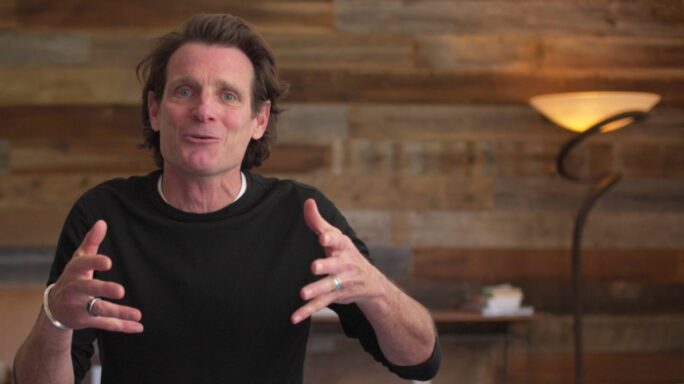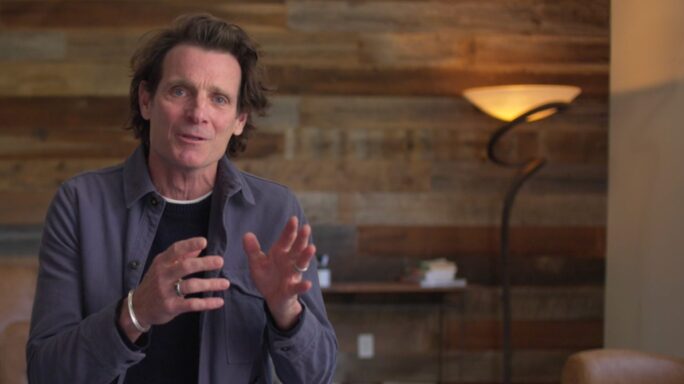Season 1: Finding and keeping great people
Integrity and the “4 Cs”: how to find and keep the best talent

Whatever we call it – from the Great Resignation to the Big Quit – it’s impossible to ignore the massive changes unfolding in the world of work. Whether due to job dissatisfaction, wage stagnation or the rising cost of living, businesses everywhere are haemorrhaging people, and it’s becoming increasingly clear that if we are to weather this storm, a different, more nuanced kind of strategy is necessary.
The last 2 years have been turbulent to say the least, and although nobody knows where exactly we are headed, it is clear that the pandemic has accelerated many behavioural changes that were already prominent prior to Covid-19. Among the countless shifts, perhaps the most poignant is the growing desire and social pressure to make the world a more ethical, regenerative, and equitable place. From the brands we buy from to the businesses we work for; our priorities have deepened, and we are increasingly searching for ways in which to live in greater alignment with our values.
In the world of work, this can manifest in demands for the cultural evolution of organisations, where the focus on diversity, inclusion, and equity has intensified, and the call for business to “be good” (and not just “do good”) has finally reached the hallowed halls of the boardroom. This is partly why, when it comes to talent, the promise of the fabled corner office seems to have lost its shine, ceding ground to those employers able to demonstrate more ambitious environmental commitments. Despite being amongst the hardest hit by the pandemic, the youngest wave of employees now entering the workforce are expressing the greatest investment in companies ‘doing good’, holding brands and employers to higher account alongside their Millennial peers. Whether vocalised via public concern around societal and environmental issues or enacted through acts of pressure to encourage businesses to redesign their organisational cultures, we’re seeing a shift away from short-term motivations around pleasure-seeking, status, and convenience, towards a deeper, more prosocial and eudemonic way of living.
From calling upon organisations to engage proactively with society and its citizens, to accepting lower-paying jobs on the basis of a company’s environmental credentials, younger generations are putting their money where their mouth is and enacting their values in ways that previous generations might only have dreamt of. Yet as more of us attempt to do right by people and planet, businesses are catching on, with those less scrupulous engaging in virtue-signalling – the public broadcasting of one’s moral character traits – in an attempt to deceive us into engaging. But this is where things can start to fall apart. In the absence of organisational integrity, when eventually we find out we’ve been working for an “ethical” company (for example) that doesn’t pay its suppliers a living wage, the cognitive dissonance or stress we experience from having violated our values can result in a great deal of discomfort and of course, backlash against the company in question.
So how can we build organisational resilience and create cultures that attract and retain great talent, during a time of such continued volatility?
I believe starts with integrity – the quality of being real, true, and genuine, of demonstrating that you’re living up to the principles or ethos you hold dear. Whether expressed as adherence to a set of values and ethics, or through an unwavering commitment to certain moral principles (such as justice, fairness, and honesty), integrity is the foundation upon which trustworthy, meaningful relationships are built. And from the research I conducted for my latest book, Business Unusual, when we analyse what characterises businesses that display a high level of integrity, we find that they generally abide by what I conceive of as the “four Cs”: commitment, congruence, consistency and coherence.
So how does this work, and what does it mean?
Commitment
The first ‘C’ in the framework is all about making an explicit (often public) commitment to uphold specific principles, whether that’s inclusion, respect, openness, honesty, fairness, or any other cherished values. If we look to the famous example of Ben & Jerry’s, for instance, theirs was one of the first companies in the world to hold social mission at equal value to their economic and product missions, making a public commitment to their cherished values around human rights, social and economic justice and environmental regeneration, and more.
Congruence
The second ‘C’ is about assessing how congruent a business is in word and deed and making sure they’re actually walking the talk. In the case of Ben & Jerry’s, this congruence can be found in their trailblazing work to become the first-ever wholly-owned subsidiary to gain B Corp Certification, and in their continued support of partner organisations that empower real-world progress to be made according to the values they espouse. Beyond a clarion call to would-be employees and conscious consumers, when organisations actively enact their values, not only can it have a positive impact on employee performance, but it can also even shape commitment levels towards the organisation itself – a win-win all round.
Consistency
The third ‘C’ is about being consistent over time, and demands that the party in question displays the patience and tenacity to establish a strong track record that people can believe in. Speaking up can be risky, and we know from recent events that reactively weighing in on a topic about which one is ill-informed (or ill-equipped to tackle) can lead to unintended consequences, undermining any positive intentions that might lie behind it. So, if, as a business, you can show up and repeatedly enact your values, even (or especially) when doing so may hurt the bottom line, such actions will demonstrate that you’re in it for the long haul and not just for the optics. It’s about persevering when the going gets tough and earning the right to speak out.
Coherence
The fourth and final ‘C’ refers to being coherent in intention and behaviour, by doing the right thing for the right reason. Although it may sound a bit intangible, younger folks in particular are especially adept in sniffing out when brands are doing something because it looks good versus because they are legally or socially compelled to, and it is on this final ‘C’ that businesses often slip up. Organisations with the highest coherence are often the ones that were established upon the values and vision of a single pioneer, and if you look at many of the values-driven brands cited as exemplars today (think Patagonia), their ethos and identity can be traced back to Founders who had the bold idea of using their businesses to help make the world a better place.
So where does this leave us?
In short, choosing where to work (and who to hire) is a lot like choosing a relationship. Both demand a lot of time and attention, and if we’re really going to take the plunge and stick around for the long-haul, we have to be certain that we know what we’re getting into, and that it’s worth the effort. From shared goals, ideals and values, to the integrity and trust required to build something extraordinary together, if business leaders are serious about attracting and retaining the best talent, they have to start right at the beginning. After all, what else is a Great Reset for?




